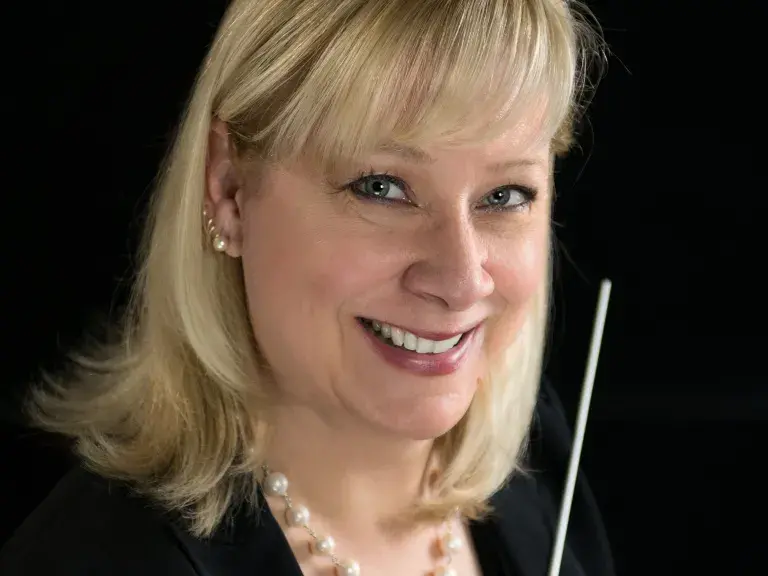
You have 13 teenagers in your 110-voice chorus. How are you able to attract these young people?
We offer scholarships by waiving dues to selected students in grades 9 through 12. Many of them come to us from our Cantus choruses, which include a training choir for kindergarten through second grade, an elementary school choir of grades 3 through 6, a middle school choir of grades 7 through 9, and a select chorus of 5th through 9th graders. The Cantus singers have their own concerts and can sing with the larger chorus at Christmas and in such works as Carmina Burana and Durufle’s Requiem.
The young people consider it a great honor to be chosen for the larger choir, and many of them bring with them the friends they made in youth choirs. Seven of them have gone off to college and returned to Choralis after graduation, helping to ensure a continuing stream of young adults.
How did you forge a friendship with British composer Bob Chilcott?
When I received a sample of his Requiem in 2010, I ordered it for our chamber choir, Echos, as something new to perform, and it turned out to be the world premiere. He was still writing the parts, and I only got the conductor’s score on the week of the concert. When we met, we became friends, and I got him to conduct the piece for the larger chorus. We are going to announce soon that he will be our Composer-in-Residence for the 2014-2015 season. He will be present for our performance of his Salisbury Vespers next May, and we will also perform the world premiere of a piece he is writing in December 2015.
What does it mean to you to perform at the Chorus America Conference?
It is a big honor professionally. It means that your work is held in high enough esteem by your peers that you can perform it in front of them. When they come, they want to hear the best of the best to be inspired to go back to do what they do. And it is also an honor to be selected in our home metropolitan area of Washington, where there are so many fine choruses.
How has Chorus America helped you as a choral director?
Chorus America is awesome. It is specifically geared toward choral societies and community-based choirs like ours. The organization helps from the management level on up with how to run a chorus and get fundraising ideas. Both musical directors and board members frequently go to seminars. When I started Choralis in 2000, Mark Ohnmacht and others were wonderful resources. We were hungry and they fed us.
You have paid singers as section leaders. How does that benefit the chorus?
An experienced section leader can listen at all levels for the things that the conductor doesn’t always hear. He or she reports back when sections are having note difficulties. The leader knows exactly how to change the sound when the conductor asks and usually gets the section to go along through default.
Do you have any unique fundraising ideas?
I am a college basketball fan, so during March Madness, we let people fill out brackets for a donation. The winner gets the glory, but the chorus keeps the money.
Have you encountered any challenges as a woman in the historically male role of a conductor?
Initially, I had a heck of a time convincing the orchestra that I deserved respect. Also, if a woman demands high quality, she often comes across to the chorus as snarky. A man can stand up and say the same thing and be considered a perfectionist. Sometimes I have had male assistant directors go over the same ground, because they may be received differently.

